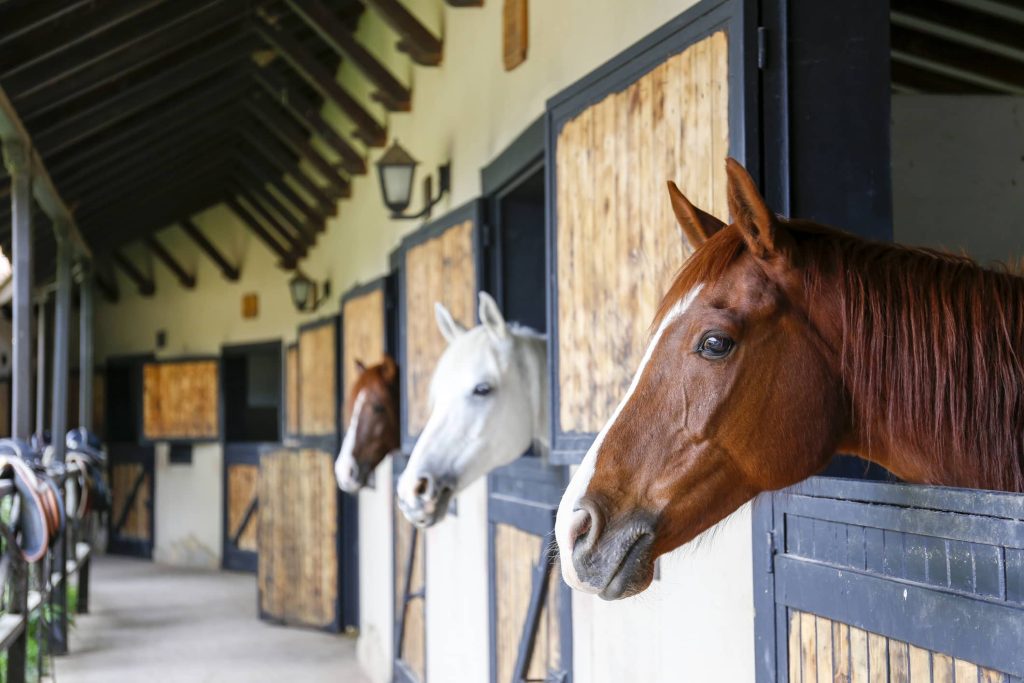
Selecting the right property for horses is a critical decision that significantly influences the well-being and quality of life for these magnificent animals. Whether you’re a seasoned equestrian or a prospective horse owner, understanding what properties are suitable for horses is essential. In this comprehensive guide, we will explore the key factors that make a property ideal for horses, covering everything from land size and topography to facilities and zoning regulations.
Acreage and Land Considerations
Adequate Acreage for Grazing and Exercise
One of the primary considerations when choosing a property for horses is the amount of acreage available. Horses require ample space for grazing, exercising, and socializing. This section will delve into the recommended acreage per horse, considering factors like the type of terrain, climate, and the presence of natural features like ponds or streams.
Terrain and Topography
The topography of the land plays a crucial role in determining its suitability for horses. Flat or gently rolling terrain is preferable, as it minimizes the risk of injury and provides a more comfortable environment for horses to move around. We will discuss the challenges associated with steep slopes and the importance of well-drained land to prevent waterlogging.
Fencing and Enclosures
Proper fencing is essential for the safety and security of horses. This section will explore various fencing options, such as wooden board fencing, electric fencing, and mesh wire fencing. We will discuss the importance of sturdy construction and appropriate heights to contain horses effectively and prevent injuries.
Facilities and Infrastructure
Barns and Shelters
Barns or shelters are crucial for providing horses with protection from the elements, whether it’s harsh sunlight, rain, or cold weather. This section will outline the key features of horse barns, including stall design, ventilation, and storage space for hay and equipment. We’ll also discuss the importance of run-in sheds in pastures for horses to seek shelter at their convenience.
Riding Arenas and Exercise Spaces
For horse owners involved in riding or training activities, the presence of a well-designed riding arena is a major asset. This section will explore the dimensions, footing materials, and drainage considerations for constructing a functional and safe riding arena. Additionally, we’ll discuss the benefits of having open spaces for horses to move freely and engage in natural behaviors.
Water Sources and Accessibility
A reliable and clean water source is paramount for the health of horses. This section will address the importance of having well-maintained water sources, such as ponds, streams, or troughs, on the property. Accessibility to water throughout the property ensures that horses can stay adequately hydrated, promoting their overall well-being.
Zoning and Regulatory Considerations
Zoning Regulations for Horse Properties
Understanding local zoning regulations is crucial when purchasing a property for horses. This section will explore common zoning considerations, such as agricultural zoning, which may be favorable for horsekeeping. We’ll discuss potential restrictions or requirements related to property size, structures, and the number of animals allowed.
Environmental Conservation and Permits
Properties with natural features like wetlands or protected habitats may be subject to environmental conservation regulations. This section will guide prospective horse owners through the process of obtaining permits and adhering to environmental regulations to ensure responsible land use and conservation practices.
Access to Trails and Riding Areas
Proximity to Riding Trails
For horse enthusiasts who enjoy trail riding, proximity to equestrian trails is a significant consideration. This section will explore the benefits of having nearby trail systems and how it enhances the overall experience for both horses and riders.
Trail Design and Maintenance
If the property includes trails or if you plan to create them, understanding trail design and maintenance is crucial. We’ll discuss the principles of sustainable trail design, including considerations for slope, erosion control, and minimizing environmental impact.
Local Services and Community
Proximity to Veterinary Care and Farriers
Access to essential services like veterinary care and farrier services is vital for maintaining the health of horses. This section will discuss the importance of proximity to qualified professionals and the role of local veterinary clinics, farriers, and equine specialists.
Community Support and Equestrian Networks
Being part of a supportive equestrian community can enhance the horse ownership experience. This section will explore the benefits of residing in areas with active equestrian networks, including riding clubs, competitions, and community events centered around horses.
Future Considerations and Adaptability
Flexibility for Future Expansion or Changes
Horse owners should consider the adaptability of the property for future changes or expansions. This section will guide prospective buyers on factors to consider, such as the potential for adding more structures, increasing pasture space, or making adjustments to facilities based on evolving needs.
Resale Value and Market Trends
Understanding the resale value of a horse property is essential, especially if you anticipate selling or upgrading in the future. This section will explore market trends in horse property values, helping potential buyers make informed decisions that align with long-term investment goals
Conclusion
In conclusion, choosing the right property for horses involves a thorough consideration of various factors, ranging from land size and topography to facilities and regulatory considerations. By understanding the unique needs of horses and aligning them with the features of a property, horse owners can create a harmonious and thriving environment for their equine companions. This comprehensive guide aims to empower prospective buyers and existing horse owners with the knowledge needed to make informed decisions, ultimately ensuring the well-being and happiness of horses on the chosen property.
